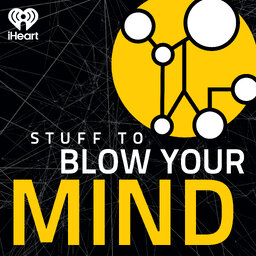From the Vault: Authenticity, Part 2
In this classic episode of Stuff to Blow Your Mind, Robert and Joe explore the topic of authenticity. What is it? Why do we place such value on it? They discuss authenticity in terms of psychology, art, music, religion and more… (part 2 of 3) (originally published 3/21/2024)
In 1 playlist(s)
Stuff To Blow Your Mind
Deep in the back of your mind, you’ve always had the feeling that there’s something strange about re…Social links
Follow podcast
Recent clips

Crab Bag, Part 3: The Crab is a Lonely Hunter
55:55

Weirdhouse Cinema Rewind: La Loba (1965)
1:30:07

From the Vault: Mystery Cults, Part 4
1:00:23
 Stuff To Blow Your Mind
Stuff To Blow Your Mind